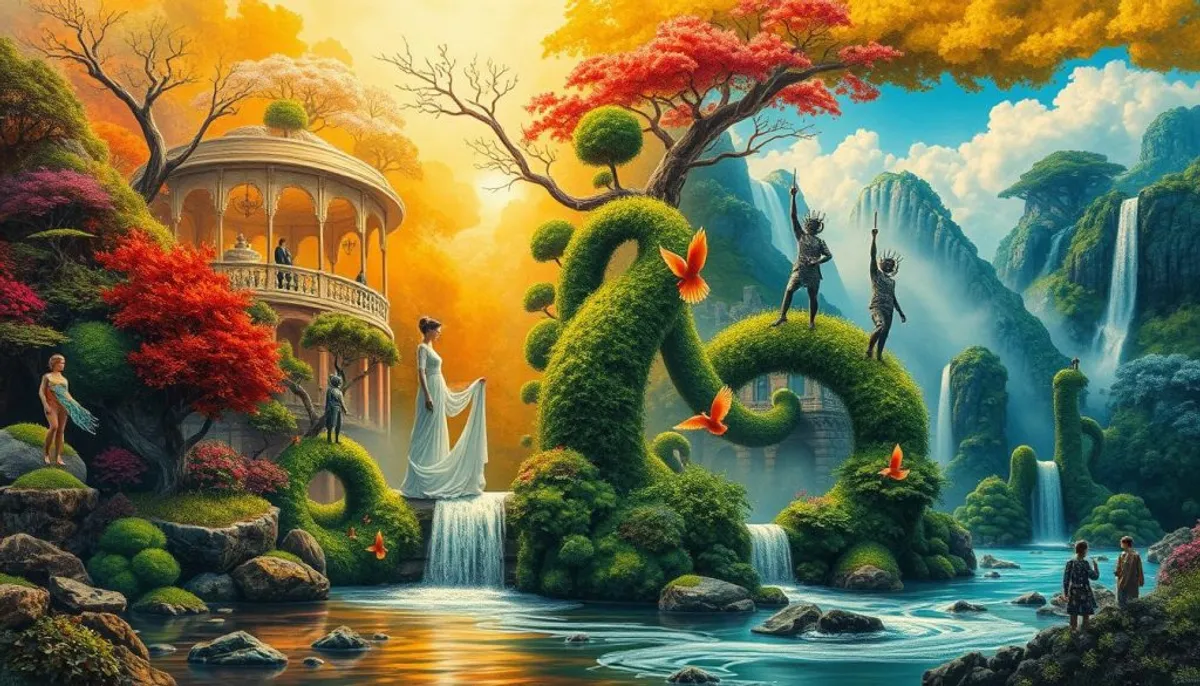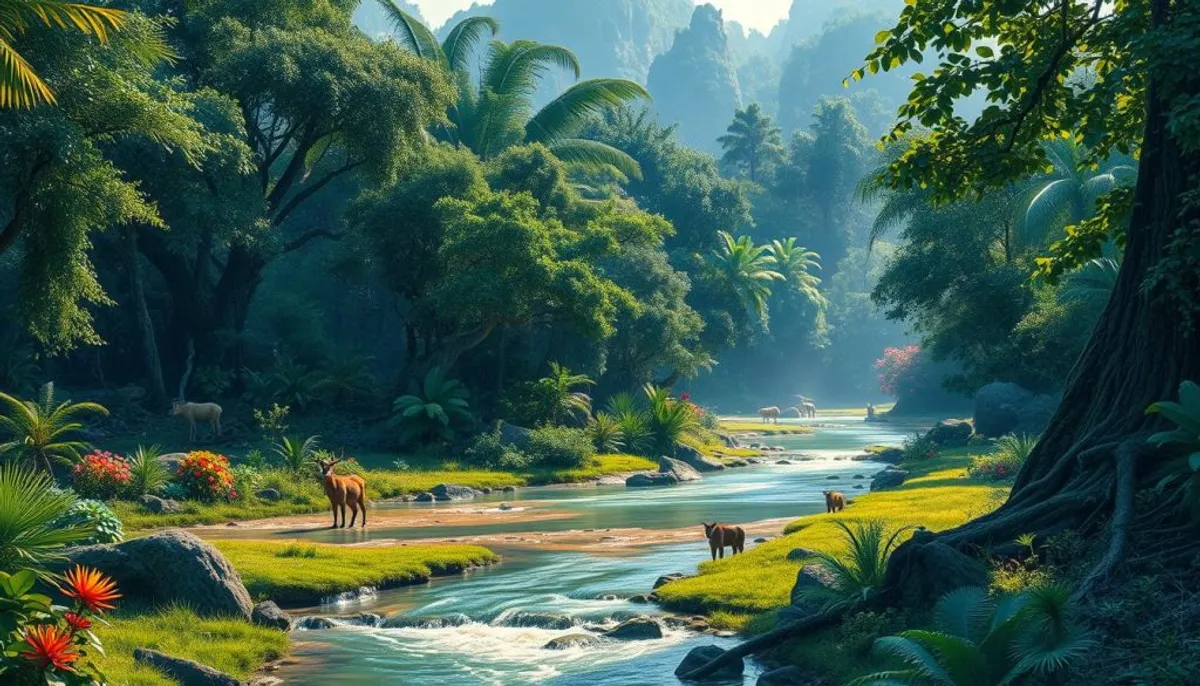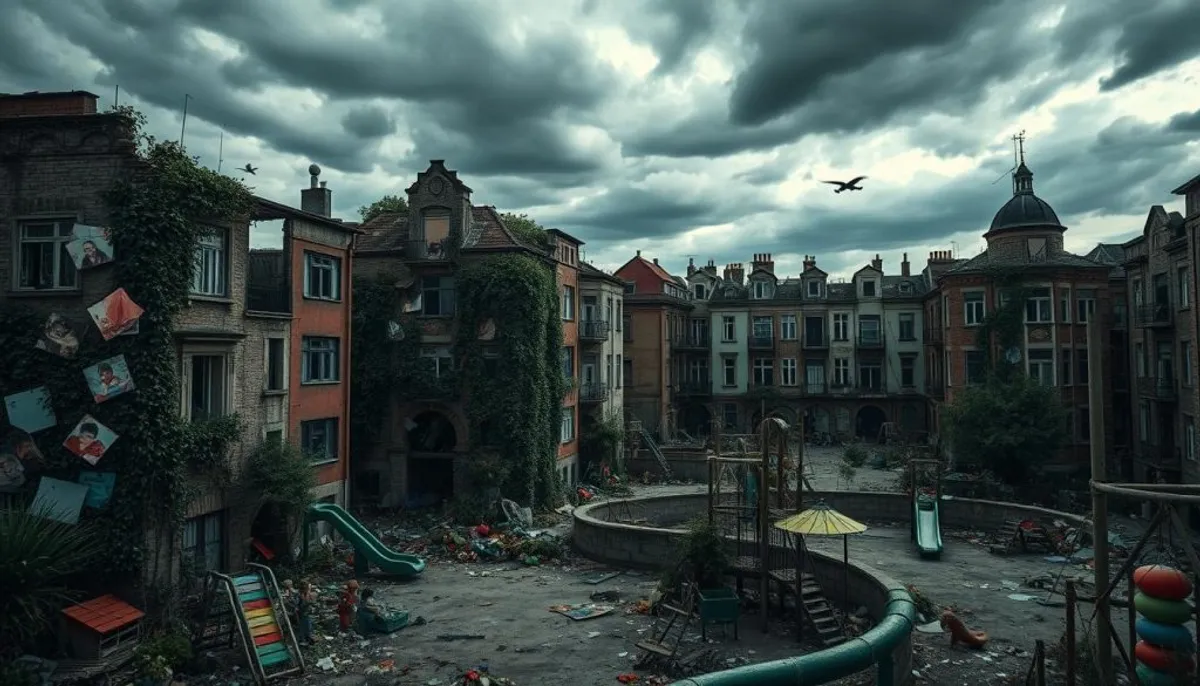The human nature and its evolution in the face of culture have captivated minds for centuries. Jean-Jacques Rousseau, an 18th-century philosopher, explored this question in “Discourse on the Origin and Basis of Inequality Among Men” (1755). He argues that the entry of man into civilization could be the source of his misery.

Rousseau distinguishes the original state of nature from the civilized state, with its constraints and vices. He emphasizes perfectibility as a unique characteristic of man. This quality, which allows for development, is also a source of torment. This reflection raises questions about progress and its effects on human happiness.
In 2016, these ideas remain relevant. They prompt us to reflect on the impact of culture on our deep nature. They push us to question the true meaning of progress. Could the misery of modern man lie in his distance from his natural state?
The human nature and its transformation by culture
Rousseau offers an original perspective on human nature and its cultural evolution. His reflection on the state of nature and human perfectibility sheds new light on our condition. This vision highlights the complexity of our existence.
The state of nature according to Rousseau
Rousseau sees the state of nature as an original condition marked by innocence and tranquility. This vision contrasts with that of Hobbes, who describes this state as violent and unjust. Rousseau argues that culture alters our nature, transforming a naturally good being into a jealous and envious individual.

The fundamental distinction between man and animal
Rousseau emphasizes an essential difference between man and animal. He points out that animality is characterized by fixed instincts, while humanity is distinguished by its capacity for adaptation and evolution. This distinction is fundamental for understanding our differences.
Perfectibility as a unique characteristic of man
Perfectibility, a central concept in Rousseau's thought, refers to man's ability to constantly develop. This faculty, absent in animals, is both a blessing and a curse. It allows for the acquisition of new knowledge but also distances man from his natural state, creating new needs and desires.
| Characteristic | Man | Animal |
|---|---|---|
| Perfectibility | Present | Absent |
| Adaptation | Flexible | Limited |
| Evolution | Continuous | Stable |
Why the entry into culture causes the misery of men
The entry into culture, although synonymous with progress, paradoxically engenders the misery of men. Civilization, by distancing man from his natural condition, creates a profound alienation. Rousseau expresses this regret for the state of nature, describing a simple and harmonious way of life lost in favor of a complex society.
Culture, according to Freud, encompasses all knowledge and power acquired to master nature and regulate human relations. However, this mastery comes at a cost. It generates new insatiable needs and endless desires, plunging man into a cycle of perpetual frustration.
The emergence of property, born from labor according to Rousseau, illustrates how civilization generates inequalities. This concept, absent from natural law, contributes to the widening of disparities, particularly in terms of wealth. Linton emphasizes that culture, although essential for the individual's adaptation, can also be a source of misery by imposing constraining norms.
| Social Inequalities | Impact on Happiness |
|---|---|
| Wealth | Frustration, envy |
| Nobility | Feeling of injustice |
| Power | Oppression, fear |
| Personal merit | Competition, stress |
Ultimately, the civilized society, despite its advancements, transforms man into a “tyrant of himself and of nature.” The resulting alienation is the price to pay for progress, leaving man nostalgic for a lost harmony with his natural environment.
The loss of original innocence and its consequences
The transition from the natural state to a civilized society represents a major turning point in the history of humanity. This evolution, although marked by progress, involves a loss of innocence. This transformation profoundly affects human nature.
The emergence of vices and inequalities
Rousseau asserted that man is naturally good, inclined towards justice and order. However, the entry into culture induces a gradual corruption. Inequalities deepen, and vices emerge. Self-love, initially neutral, transforms into vanity and selfishness in the face of society.

The break with natural harmony
The state of nature offered a natural harmony between man and his environment. Civilization breaks this balance. Individual interests oppose each other, and conscience weakens in the face of exalted passions. This break marks the transition from essential goodness to inherent wickedness, when personal ambition awakens.
The alienation of man by society
Social alienation manifests through the creation of artificial needs and dependence on social structures. Man loses his individual freedom, becoming a slave to conventions and appearances. This transformation generates a cycle of unfulfilled desires and a tyranny of man over himself.
| State of Nature | Civilized Society |
|---|---|
| Innocence | Corruption |
| Equality | Inequalities |
| Natural Harmony | Break with Nature |
| Individual Freedom | Social Alienation |
The manifestations of misery in civilized society
Civilized society generates various forms of suffering. The evolution of our social structures has transformed our relationship with the world and ourselves. It creates a fertile ground for misery.
The infernal cycle of unfulfilled desires
The thought of Schopenhauer highlights an endless cycle of unfulfilled desires in modern man. The incessant quest for wealth and success often replaces the true values of life. This frantic race leads only to ephemeral contentment, quickly replaced by new needs.
The tyranny of man over himself
The individual becomes a tyrant of his own existence. Social and moral constraints impose a permanent self-restraint. In Western countries, physical violence has been replaced by symbolic violence, creating an appearance of social pacification. This tyranny within generates a profound devaluation of self.
The destruction of nature and its consequences
Technical progress, a symbol of our civilization, leads to an increasing destruction of nature. This rupture with our original environment generates new problems. Pauperization and inadequate economic policies amplify this phenomenon, widening inequalities and exacerbating collective suffering. In this context, distance learning appears as a potential solution to reduce these inequalities and offer accessible learning opportunities for all.
These manifestations of misery in our civilized society reveal the limits of our development model. They highlight the urgency of rethinking our relationship with the world and ourselves to regain a more harmonious balance.
Conclusion
The philosophical reflection on man's entry into culture raises profound questions. It invites us to reconsider our relationship with human nature and progress. This analysis sheds light on essential questions regarding our quest for happiness and our role in society.
Cultural evolution has certainly brought considerable advancements. However, it has also created new forms of suffering and alienation. Current conflicts, marked by cultural, economic, and identity factors, demonstrate the tensions between human groups.
It is essential to promote an intercultural approach. This approach must recognize the complexity of identities and human interactions. In this context, the cancel culture could help us better grasp the challenges of our time and find a balance between the benefits of civilization and a harmony closer to our natural state.
Ultimately, this reflection encourages us to remain attentive to the impacts of culture on our well-being. It urges us to seek ways to reconcile progress and personal fulfillment, particularly through initiatives like street arts. By cultivating this awareness, we could build a more harmonious society that respects our deep nature.
RelatedRelated articles


